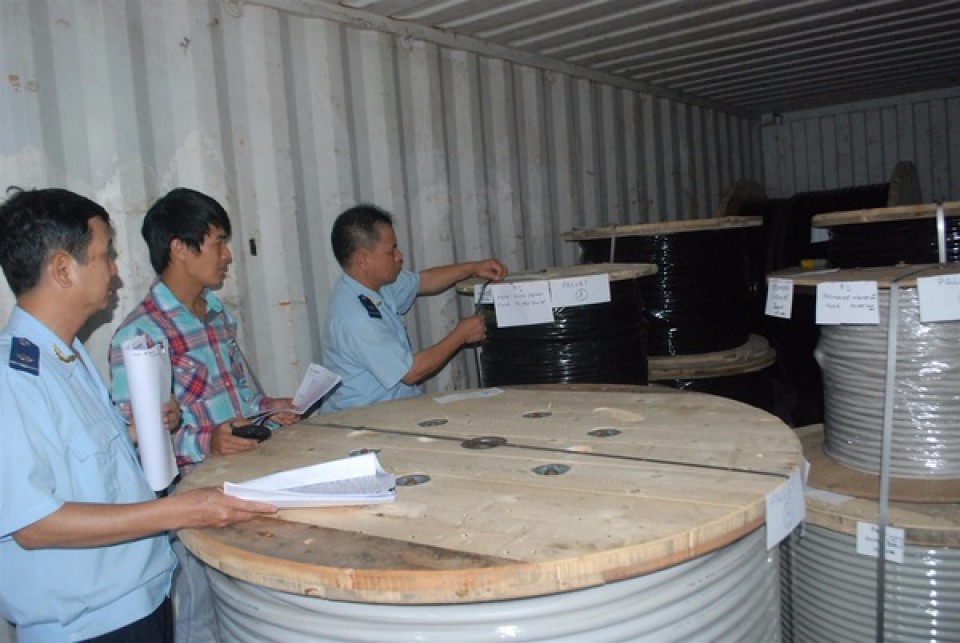Circular amending and supplementing Circular 38/2015 / TT-BTC: Many new regulations on management of processed goods and export production
Regarding the Customs management of processed goods, export production and export processing enterprises, the Circular amending and supplementing Circular 38/2015 / TT-BTC contains many provisions to renovate the way of management, apply modern management methods to solve problems in practice.

Clearly define two types of norms
The current Circular No. 38/2015 / TT-BTC regulates the actual norms; defines responsibilities of organizations and individuals to set norms, and to keep the documents related to norms and presentation when requested by the Customs office. However, in order to be consistent with the reality of processing activities, the production of goods in enterprises, ensuring the management of Customs offices as provided for in Clause 1, Article 59 of the Customs Law, the revised Circular No. 38/2015 / TT-BTC clearly specifies the technical norms and actual norms. The Customs officers shall use technical norms to analyze the processing goods for export and shall not serve as a basis for concluding that organizations and individuals use raw materials and supplies for wrong export production.
The Circular also stipulates the actual norms, the way of determining the actual norms and the time of submission of the actual norms when submitting the settlement report as provided in Article 60 of the Circular. The organizations, individuals and Customs offices shall use the actual production norms to determine the tax amount when converting the use purpose, transferring the domestic consumption of the products, refunding the tax or collecting taxes.
Revised Circular No. 38/2015 / TT-BTC also amended the regulations on notification of production establishments, places of storing processed goods, and export production. According to the current Circular 38, prior to importing the first batch of goods, the individuals have the responsibility to notify the production unit to the Customs office where the import procedures are carried out.
In case of storing raw materials, supplies and production outside the production establishments, before sending raw materials, supplies and products to the storage places, the organizations or individuals must notify the storage places to the Customs Branches according to Form 20, Appendix II or Form 12-TB-CSSX / GSQL Annex V issued together with this Circular.
In case of change of the place where the production establishment has been notified, the organization or individual shall notify the Customs Branch or the Customs office of the place where it intends to transfer through the system or in writing, to make the final settlement report as prescribed.
Organizations and individuals shall have to notify the processing contracts annexes according to the norms prescribed in Form 21, Form No.22, Appendix II issued with the Circular, to the Customs Branches to announce the production establishments through the e-customs data processing system. The number of contract receipts and appendices of processing contracts shall be declared on the export and import declarations.
Share information electronically
Circular No. 38/2015 / TT-BTC stipulates the submission of settlement reports within 90 days after the end of the financial year, the Customs declarants shall submit reports on settlement of the use of raw materials, equipment and exported goods in the fiscal year to the Customs office. In order to comply with Clause 1, Article 59 of the Customs Law; reform the modern management mode, the revised Circular 38/2015 / TT-BTC shall supplement regulations on organizations and individuals for connecting and sharing information. The Customs offices shall analyze and assess the compatibility of data sent by organizations and individuals via the system with the data on the system of customs offices, which shall serve as a basis for inspection decision according to current regulations.
For organizations and individuals that have not yet joined the system, they shall submit the settlement reports according to form No. 15 / BCQT-NVL / GSQL, form No. 15b / BCQT-SP / GSQL and form No. 16 / TBDMTT-GSQL.
In the revision of the statement of accounts, the circular shall be amended within 60 days from the date of submission of the settlement report, before the time the customs office issues a decision on inspection of final settlement. Expiring the time limit of 60 days from the date of submitting the final settlement report or after the time when Customs offices decide to examine the final settlement and post-customs clearance audit report, the organization or individual which make amendments or supplements to the settlement reports to Customs offices shall be handled according to the provisions on tax and the Law on handling of administrative violations.
Deal with the excess and lack of raw materials
The revised Circular No. 38/2015 / TT-BTC settles the excess and lack of raw materials after the inspection results. In case of checking and determining the quantity of raw materials in actual inventory in difference with the data on accounting vouchers and accounting books, the organizations and individuals shall be required to explain. If organizations or individuals provide dossiers, vouchers and documents proving and explaining the difference, the Customs shall accept the supplied data, record the actual data for inspection and issue the inspection conclusions, and then update the final results into the system.
If the organization or individual fails to supply the dossiers, vouchers and documents, the handling shall be implemented according to the existing dossiers of the Customs offices. If the explanation of the organization or individual does not have enough grounds to prove the cause of the difference, the Customs office shall handle as follows: In the case where the agency determines the cause of the difference, the Customs will base themselves on tax law provisions, Customs legislation and existing dossiers in order to decide on tax handling.
Source: customsnews.vn
